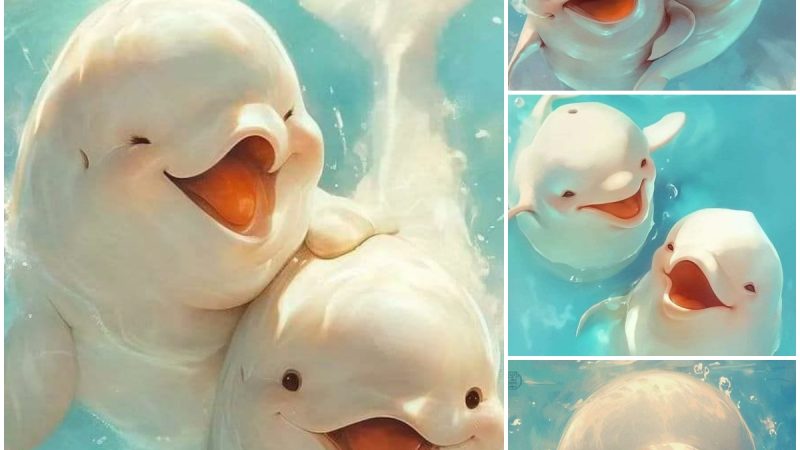Majestic Antarctic Blue Whale Found Stranded 8,000km Away in Namibia, Victim of Boat Collision

In a rare and heartbreaking occurrence, a magnificent Antarctic blue whale, measuring an astounding 18.2 meters in length, has been discovered stranded on the shores of Namibia, a staggering 8,000 kilometers away from its natural habitat. Experts believe that this majestic creature met its tragic fate due to a collision with a boat, leaving conservationists and marine enthusiasts deeply saddened.
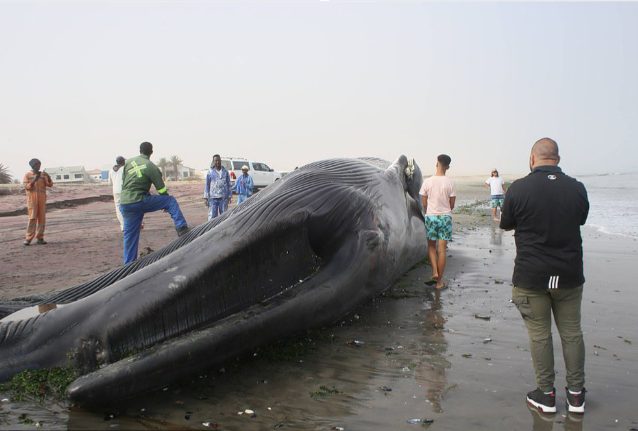
The sighting of an Antarctic blue whale in African waters is an unprecedented event. Simon Elwen, a conservationist from the Namibian Dolphin Project (NDP), expressed astonishment, stating, “This is the first time we have recorded a case of Antarctic blue whales drifting off the coast of Africa.” The presence of such a magnificent creature in unfamiliar territory highlights the impact of human activities on the delicate ecosystems of our oceans.
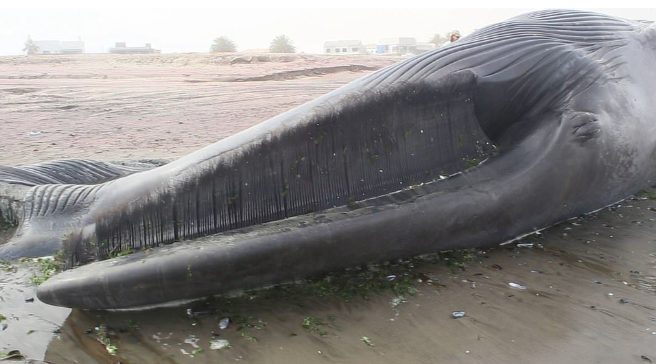
Examining the whale’s carcass, experts have concluded that the collision with the boat likely caused severe injuries leading to its untimely demise. The force of the impact was evident as the animal’s body showed signs of rotation and damage to its fins. “The impact must have been very strong,” Elwen remarked somberly. It is believed that the blue whale’s life was cut short, leaving little chance for survival after the catastrophic collision.
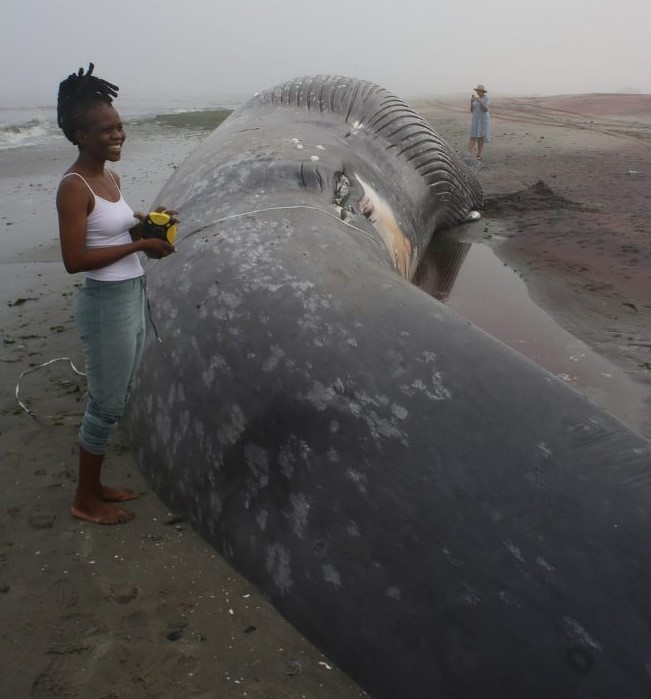
Blue whales, the largest creatures to roam the Earth, can reach lengths of up to 30 meters and weigh a staggering 150 tons. The stranded whale in Namibia, measuring just over half the size of an adult blue whale, serves as a poignant reminder of the beauty and vulnerability of these gentle giants. Bridget James, a member of the NDP, expressed her sadness at the loss, stating, “This is the first time I have seen a blue whale. It’s tragic that the animal died due to human actions.”
Dr. Tess Gridley, a British expert working in South Africa, acknowledged the unfortunate reality that such incidents still occur, even in areas where human and whale habitats overlap. Despite efforts to protect marine life, the threats posed by boat collisions persist, causing harm and loss to these magnificent creatures.
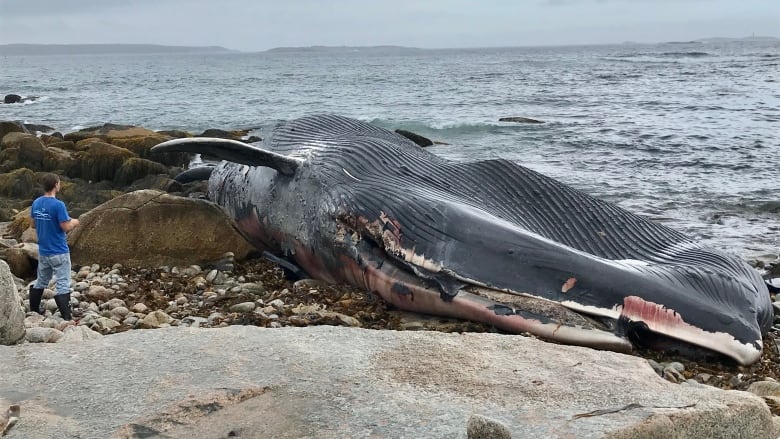
Local authorities have made plans to bury the whale carcass, but the logistics of carrying out this task remain uncertain. Meanwhile, the NDP has taken samples from the blue whale for further analysis in laboratories, hoping to glean additional insights into its biology and the potential impacts of human activities on its species.
The discovery of this stranded Antarctic blue whale in Namibia serves as a poignant reminder of the challenges faced by marine conservationists and the urgent need for greater awareness and protection of our oceans and its inhabitants. It is a testament to the delicate balance that must be maintained between human activities and the preservation of these majestic creatures, ensuring that future generations can continue to witness their awe-inspiring presence in the world’s oceans.
